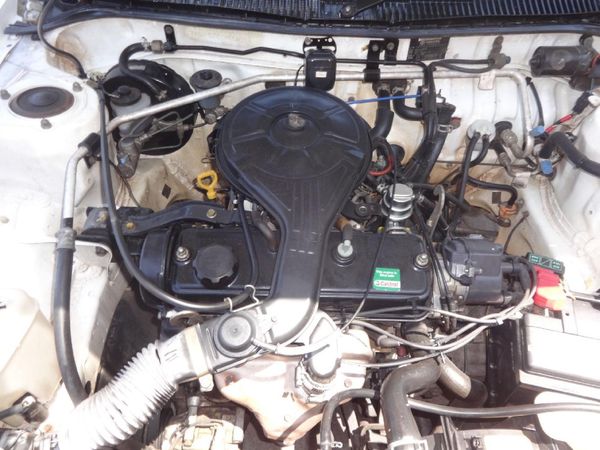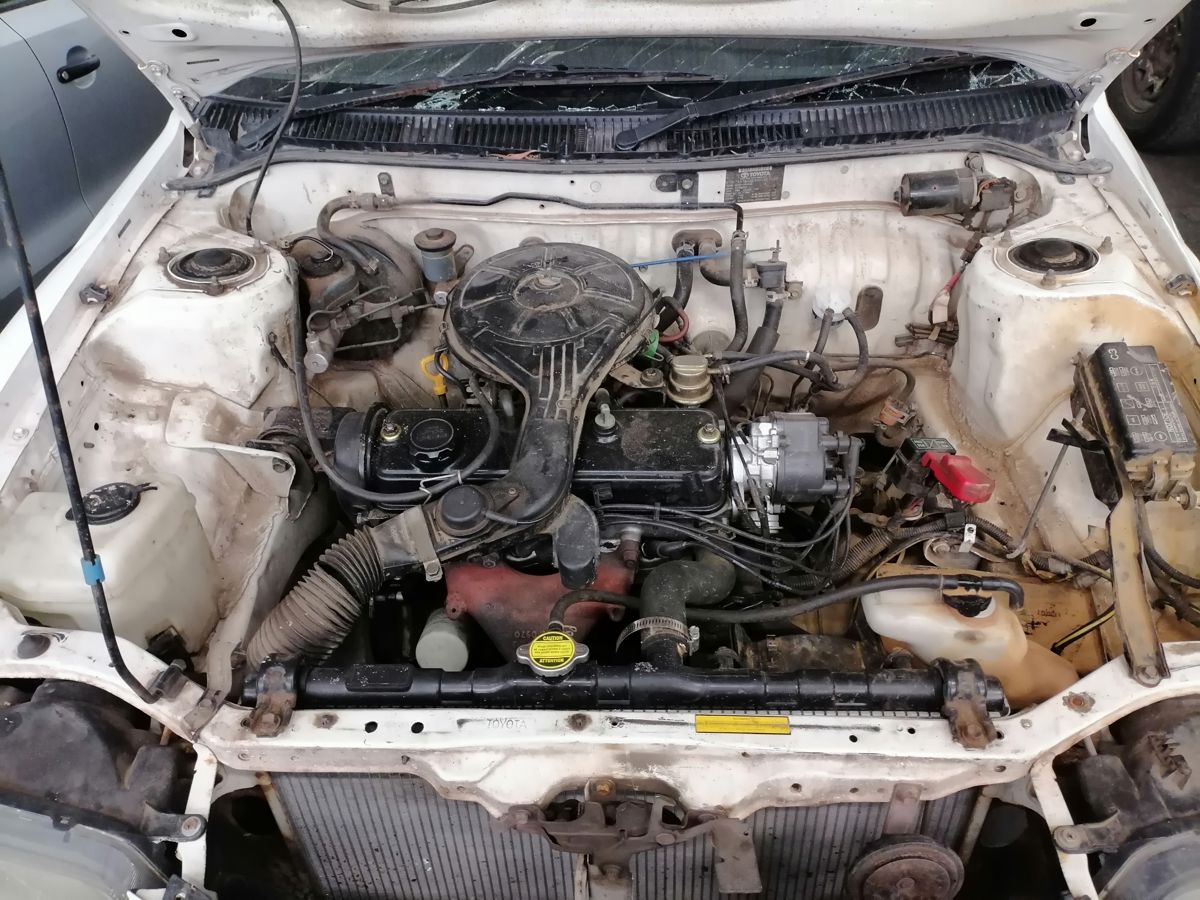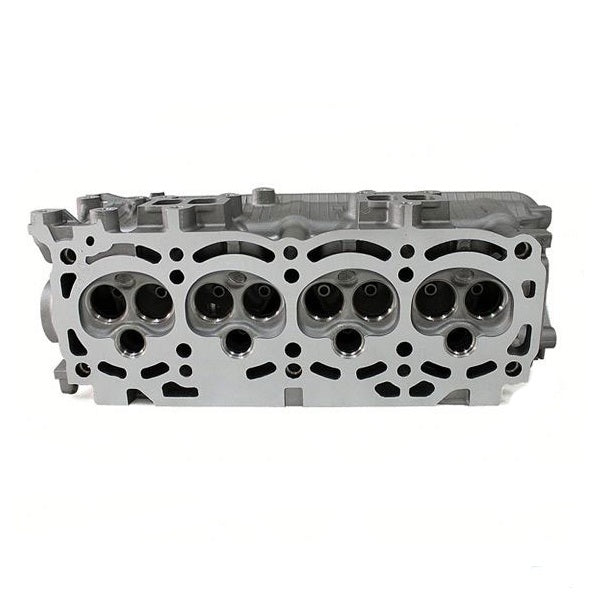How the Toyota Tazz Became a Staple in the Compact Car Market
How the Toyota Tazz Became a Staple in the Compact Car Market
Blog Article
Explore the Newest Fads in Engine Modern Technology Through Tazz
In the swiftly advancing landscape of vehicle innovation, Tazz stands at the forefront, highlighting significant innovations in engine systems that focus on both advancement and sustainability. From hybrid engines that optimize gas effectiveness to the emergence of hydrogen gas cells, the fads forming modern-day powertrains are not just enhancing efficiency however also addressing essential ecological challenges.
Crossbreed Engine Innovations
Hybrid engine innovations stand for a critical change in automobile technology, incorporating the benefits of inner combustion engines with electrical propulsion systems. This combination not just improves gas effectiveness yet likewise lowers discharges, meeting progressively stringent ecological regulations. By using both power sources, hybrid engines can maximize performance, supplying power when needed while saving gas during much less requiring driving problems.
Current developments in crossbreed technology consist of improvements in battery effectiveness and regenerative stopping systems. These innovations enable better energy recuperation throughout deceleration, which can be redirected to aid in acceleration or power auxiliary systems. Moreover, manufacturers are focusing on small layouts and lightweight materials to maximize the effectiveness of crossbreed powertrains.
The development of plug-in hybrids has actually likewise broadened the marketplace, making it possible for vehicle drivers to bill their vehicles using conventional electric outlets. This function commonly permits for substantial all-electric array, more lowering dependancy on typical gas. tazz. As the auto sector remains to advance, hybrid engine modern technologies are anticipated to play a crucial duty in linking the void in between traditional cars and completely electric models, giving a transitional remedy that provides to diverse consumer needs and choices
Breakthroughs in Electric Powertrains
The vehicle landscape is quickly developing, with electric powertrains becoming a leading pressure in sustainable transportation. Breakthroughs in electrical car (EV) technology are significantly boosting performance, individual, and efficiency experience. Secret advancements consist of improvements in battery chemistry, which have enhanced energy density, lowered billing times, and prolonged overall battery life.
Solid-state batteries, for instance, guarantee to transform the marketplace by providing better safety and effectiveness contrasted to standard lithium-ion cells. Furthermore, developments in regenerative braking systems are enabling lorries to recoup power during deceleration, adding to overall performance.
In addition to battery innovation, electrical motor designs are ending up being a lot more sophisticated. Developments such as incorporated electric motors and advanced thermal management systems are assisting to maximize power distribution and reduce weight, eventually improving lorry dynamics.

Collectively, these advances emphasize the dedication to shift towards cleaner, much more efficient transport services, positioning electrical powertrains at the center of auto advancement.
The Increase of Hydrogen Fuel Cells
Increasingly, hydrogen gas cells are obtaining grip as a practical alternative to typical inner burning engines and battery electric vehicles. This modern technology takes advantage of the chemical energy stored in hydrogen, transforming it into electricity via an electrochemical response with oxygen. The primary result of this procedure is water, making hydrogen fuel cells an eco pleasant option with absolutely no discharges at the tailpipe.

Car manufacturers are significantly purchasing hydrogen fuel cell innovation, acknowledging its possibility for long-range applications and rapid refueling capabilities that match traditional gas. In addition, fields such as heavy-duty transport and public transit are particularly appropriate for hydrogen fuel cells, where battery electric options might fail due to weight and variety constraints.
As research and financial investment remain to expand, hydrogen gas cells are positioned to play a significant duty in the future landscape of tidy transportation and energy services.
Enhancements in Internal Burning Engines
Developments in internal burning engine (ICE) innovation are transforming traditional lorries to satisfy modern ecological requirements and performance assumptions. Direct gas injection, for instance, permits for better atomization of gas, leading to more complete burning and enhanced power result.
Furthermore, turbocharging has actually gotten prominence, permitting smaller engines to supply higher efficiency without the weight of larger engines - tazz. This modern technology not only enhances effectiveness yet likewise adds to reduce gas usage. Variable shutoff timing systems are also being improved, enabling engines to adjust to various driving problems for boosted torque and responsiveness
Furthermore, the usage of lightweight products in engine construction is becoming common, further improving gas effectiveness by lowering overall automobile weight. Engine control devices (ECUs) are increasingly innovative, enabling real-time adjustments that enhance efficiency and emissions.
These enhancements jointly indicate a critical change in ICE modern technology, aligning with global sustainability goals while still giving the efficiency drivers expect from their automobiles. As the sector evolves, these improvements continue to form have a peek here the future of typical automotive engineering.
Future Trends in Engine Efficiency
Considerable improvements in engine performance are prepared for as manufacturers concentrate on integrating advanced innovations to satisfy rigid ecological guidelines and customer demands. The shift towards electrification, hybrid systems, and alternate fuels is reshaping the automobile landscape, driving developments that enhance fuel economy and reduce emissions.
Among the vital fads is the execution of innovative products and producing techniques. High-strength alloys and light-weight compounds add to decreased car weight, thus boosting total effectiveness. Additionally, the fostering of turbocharging and variable shutoff timing innovations permits improved power result from smaller sized engines, even more enhancing gas economic situation.

Verdict
To conclude, the exploration of engine technology exposes substantial her comment is here advancements that prioritize sustainability and performance. Advancements in hybrid engine systems, electrical powertrains, and hydrogen gas cells demonstrate a commitment to lowering discharges while enhancing efficiency. Renovations in internal combustion engines and an emphasis on light-weight materials contribute to general engine performance. As the automotive market proceeds to advance, these trends will play a critical role fit a cleaner and more click this link lasting future for transport.
From crossbreed engines that maximize gas efficiency to the emergence of hydrogen fuel cells, the trends shaping modern powertrains are not only enhancing performance but also dealing with vital ecological difficulties.Hybrid engine developments represent a critical shift in automobile technology, combining the benefits of inner burning engines with electrical propulsion systems.Furthermore, turbocharging has acquired prominence, allowing smaller sized engines to supply greater performance without the weight of larger engines. Additionally, the fostering of turbocharging and variable shutoff timing innovations allows for improved power result from smaller sized engines, additionally enhancing fuel economic situation.
Renovations in interior combustion engines and an emphasis on light-weight materials add to general engine efficiency.
Report this page